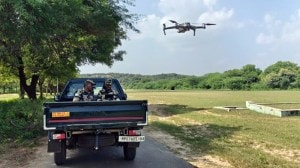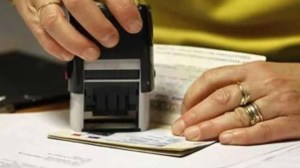Govt’s best case: Going to Vienna but its hands tied
With time running out for India on the nuclear deal, the Left today indicated to the UPA government that it could be willing to reconsider its position and allow...

With time running out for India on the nuclear deal, the Left today indicated to the UPA government that it could be willing to reconsider its position and allow completion of the remaining steps in Vienna to confirm the India-specific safeguards agreement with the International Atomic Energy Agency (IAEA) — but on the condition that the government doesn’t take it forward.
Left sources said that concluding the safeguards treaty would put the deal on “auto-pilot” with the US taking India’s case to the Nuclear Suppliers Group (NSG). “We may not be in a position to stall its operationalisation after that,” said a senior CPM leader indicating the Left’s need for a clear commitment from the government against further operationalisation.
While this does provide a window of opportunity to the government on the eve of the crucial ninth meeting of the UPA-Left mechanism on the nuclear deal, sources said, the stalemate continues over what kind of conditions the Left may want explicitly mentioned in case it gave this concession.
This stood unresolved till late this evening even as External Affairs Minister Pranab Mukherjee remained in constant touch with CPM General Secretary Prakash Karat through the day. The two met late on Monday night and again on Tuesday night.
Government sources said that any assurance explicitly suggesting any withdrawal from the 123 Agreement would be difficult to come by as it could derail any efforts to get exemption from the NSG. “If we formally announce that we are not going to sign the 123 agreement with the US, asking the NSG for exemption is a non-starter. No one in the NSG will take us seriously,” said the source.
Mukherjee is learnt to have explained to Karat the urgent need to initiate nuclear trade with countries like Russia and France given the fuel shortage in nuclear installations across the country. The urgency was all the more driven by the fact that the IAEA will begin its search for Director General Mohammed ElBaradei’s successor in a month or so. A change of guard in Vienna, sources said, could be disadvantageous for the currently negotiated India-specific safeguards agreement, which recognizes India’s unique nuclear status.
Karat was, however, adamant on his stance that the Left would not allow any next step beyond the IAEA as it would mean operationalisation of the deal.
Prior to his late-night meeting with Mukherjee, Karat maintained his stridency. Other Left leaders, too, did not show any accommodation. “Our stand remains the same. No new facts have emerged to make a change in our stand,” said CPI general secretary A B Bardhan after meeting Karat.
Last November, after the meeting in which the Left had allowed the government to go to Vienna, a joint statement read out by the External Affairs minister had said, “The Government will proceed with the talks and the outcome will be presented to the committee for its consideration before it finalises its findings.”
Left leaders today rejected the government argument that entering into nuclear trade with Russia and France will help address the fuel shortage situation. “We are not against nuclear energy per se. But If they are really serious about energy security, whey are they dragging their feet on the Iran-Pakistan-India gas pipeline and tapping other energy sources?” Bardhan said.
Photos





- 01
- 02
- 03
- 04
- 05

























